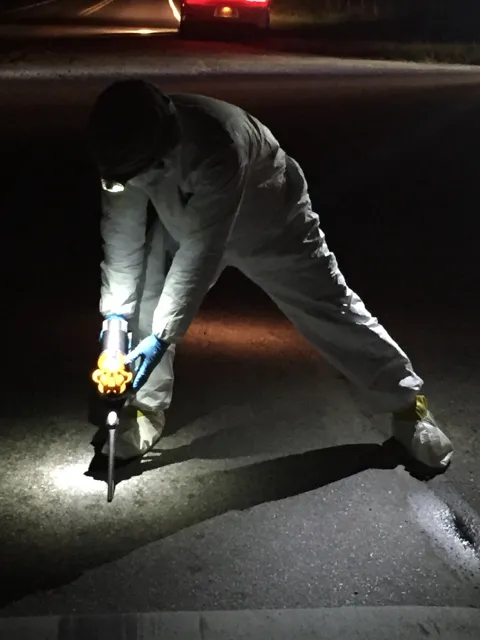The Domestic Nuclear Detection Office (DNDO) plays an important role in the field of nuclear forensics. In addition to advancing technical capabilities and supporting expertise development, DNDO coordinates with other partners to exercise the U.S. government’s ability to collect nuclear debris samples in the event of a detonation and transport them to laboratories for analysis.

Official DHS Photo by DNDO
One such exercise took place this fall. The exercise, Prominent Hunt 16-2B, was conducted in Tampa, Florida, using the Hillsborough County Sheriff’s Office Walter C. Heinrich Training Center as the exercise venue.
Working in close coordination with Florida state and local agencies, DNDO and its federal partners conducted the exercise against the backdrop of a simulated detonation of a terrorist nuclear device. The National Technical Nuclear Forensics Ground Collection Task Force, which includes members from the Department of Defense (DoD), Department of Energy’s National Nuclear Security Administration (DOE/NNSA), and the Federal Bureau of Investigation, deployed to the site of this mock detonation to practice collecting nuclear debris.

As in a real nuclear event, our federal, state and local partners deployed planes and helicopters with aerial radiation detection and mapping equipment in support of the Task Force. This equipment can determine radiation levels and assist in the collection of optimal evidence samples, while ensuring the safety of the Task Force and other responders. Nuclear debris collected after a detonation can be analyzed using nuclear forensics techniques to help determine those responsible for the attack.
Exercises such as Prominent Hunt help support DNDO’s mission to ensure the nation’s nuclear forensics capabilities are prepared to respond to nuclear threats.
